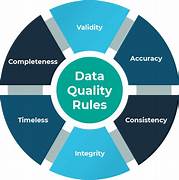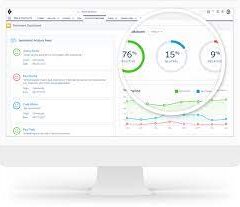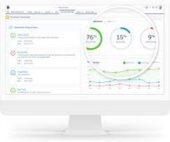Data quality has never been more critical, and it’s only set to grow in importance with each passing year. The reason? The rise of AI—particularly generative AI.
Generative AI offers transformative benefits, from vastly improved efficiency to the broader application of data in decision-making. But these advllucantages hinge on the quality of data feeding the AI. For enterprises to fully capitalize on generative AI, the data driving models and applications must be accurate. If the data is flawed, so are the AI’s outputs.
Generative AI models require vast amounts of data to produce accurate responses. Their outputs aren’t based on isolated data points but on aggregated data. Even if the data is high-quality, an insufficient volume could result in an incorrect output, known as an AI hallucination. With so much data needed, automating data pipelines is essential. However, with automation comes the challenge: humans can’t monitor every data point along the pipeline. That makes it imperative to ensure data quality from the outset and to implement output checks along the way, as noted by David Menninger, an analyst at ISG’s Ventana Research.
Ignoring data quality when deploying generative AI can lead to not just inaccuracies but biased or even offensive outcomes. “As we’re deploying more and more generative AI, if you’re not paying attention to data quality, you run the risks of toxicity, of bias,” Menninger warns. “You’ve got to curate your data before training the models and do some post-processing to ensure the quality of the results.”
Enterprises are increasingly recognizing this, with leaders like Saurabh Abhyankar, chief product officer at MicroStrategy, and Madhukar Kumar, chief marketing officer at SingleStore, noting the heightened emphasis on data quality, not just in terms of accuracy but also security and transparency.
The rise of generative AI is driving this urgency. Generative AI’s potential to lower barriers to analytics and broaden access to data has made it a game-changer. Traditional analytics tools have been difficult to master, often requiring coding skills and data literacy training. Despite efforts to simplify these tools, widespread adoption has been limited. Generative AI, however, changes the game by enabling natural language interactions, making it easier for employees to engage with data and derive insights.
With AI-powered tools, the efficiency gains are undeniable. Generative AI can take on repetitive tasks, generate code, create data pipelines, and even document processes, allowing human workers to focus on higher-level tasks. Abhyankar notes that this could be as transformational for knowledge workers as the industrial revolution was for manual labor.
However, this potential is only achievable with high-quality data. Without it, AI-driven decision-making at scale could lead to ethical issues, misinformed actions, and significant consequences, especially when it comes to individual-level decisions like credit approvals or healthcare outcomes.
Ensuring data quality is challenging, but necessary. Organizations can use AI-powered tools to monitor data quality, detect irregularities, and alert users to potential issues. However, as advanced as AI becomes, human oversight remains critical. A hybrid approach, where technology augments human expertise, is essential for ensuring that AI models and applications deliver reliable outputs. As Kumar of SingleStore emphasizes, “Hybrid means human plus AI. There are things AI is really good at, like repetition and automation, but when it comes to quality, humans are still better because they have more context.”
Ultimately, while AI offers unprecedented opportunities, it’s clear that data quality is the foundation. Without it, the risks are too great, and the potential benefits could turn into unintended consequences.













